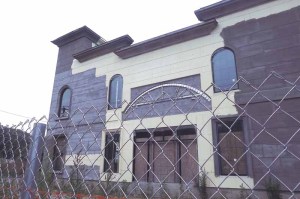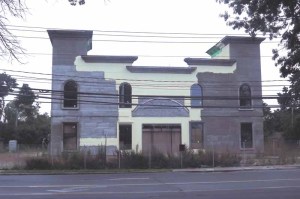
Members of a Sikh temple in Plainview believe they have fallen prey to religious discrimination and have filed a federal lawsuit against the Town of Oyster Bay.
The Guru Gobind Singh Sikh Center, at 1065 Old Country Rd., filed a lawsuit against the town, its board and individual members of the board challenging the town’s zoning regulations and what the temple charges is a targeted resolution effectively prohibiting temple members from worshiping. The complaint alleges violations of the First and Fourteenth amendments to the U.S. Constitution, the federal Religious Land Use and Institutionalized Persons Act (RLUIPA) and the New York Constitution.
Religious land uses are protected from undue burdens, discrimination and arbitrary treatment under RLUIPA, which was passed by Congress in 2000 to prevent discrimination against religious institutions in land use regulation.
The complaint describes the town’s “arbitrary, capricious and illegal actions taken to prevent the Sikh congregation from continuing to worship as it has since 1987, on the same property in a new replacement temple building.”

In early 2014, the temple applied to the town to replace its aging house of worship with a modern facility. That same year, the town approved the temple’s site plan and a building permit was issued on March 7, 2014. The temple then demolished its existing building, and in October 2014, construction of the new Sikh temple commenced. After receiving quality of life complaints from residents, the town issued a Stop Work Order on July 2, 2015, as construction was nearing completion.
In order to accommodate those complaints, the temple submitted a new site plan that was approved and then nullified by the town board, which then directed the temple to reapply for site plan approval—which would have left the temple’s congregation without a house of worship for several years.
“I’ve never seen a violation of RLUIPA as blatant as this,” said Roman Storzer, co-counsel for the temple. “To process the temple’s applications, accept their fees, approve the building, allow them to spend enormous sums for construction and then to prevent its completion, is as significant a burden on constitutionally protected religious worship as I’ve ever seen.”
Supervisor John Venditto said that although the filing of the lawsuit limits the town’s ability to comment, there has never been any deviation from the town’s original position that this is not a matter of religion.
“The town’s highest priority is ensuring that there is adequate parking and that all relevant environmental reviews are followed so as to not disturb the surrounding community’s peaceful enjoyment of their neighborhood,” said Venditto. “The town has gone on record saying that the Sikh congregation has been a valued neighbor and a part of the Oyster Bay community for over 30 years and it is our hope that we can resolve this matter amicably.”
Paul Savad, lead attorney for the temple said that unless the town can quickly come to terms with the temple, it will proceed to a jury trial and will recover money damages, with the plaintiff’s legal fees also reimbursed by the town.
“The town issued illegal and improper stop work orders based upon political, biased, improper, non-existent offsite parking and environmental review issues,” said Savad. “The approved site plan, for which a building permit was issued, provides 64 on-site parking spaces, although the Town Zoning Ordinance requires 21 on-site spaces; and no environmental review for the project was or is required because the new temple is a nearly complete replacement of a structure, in kind, on the same site.”































